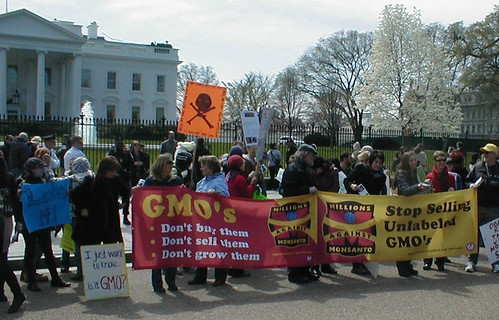January 2012
 |
| Question marks over GM maize. Photo © Greenpeace / Martin Langer |
A major issue highlighted by the GM food debate has always been what to debate. While Joe Public has deep misgivings spanning not only the immediate concerns, such as food safety, the scientific limitations, and the undue influence of commercial pressures, but about the long-term environmental, social and economic issues. The regulators have, so far, refused to deal with the breadth of questions that the people want answered.
Concerns raised are routinely dismissed with with assurances that GM food has been rigorously assessed. What this means is that some form of risk assessment has been carried out and, in terms of whatever parameters have been applied, the GMO has passed. The problem is that, with careful selection and application, these parameters can be made to tell you anything you want to know (see
TORTURING THE RISK ASSESSMENT - GMFS News Archive, November 2010).




